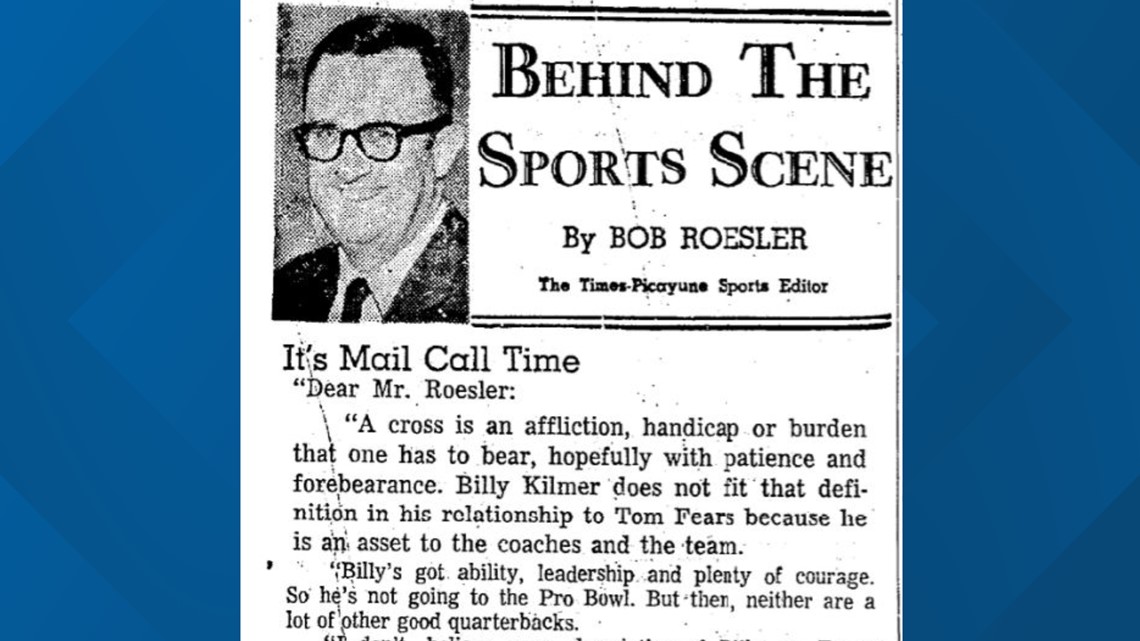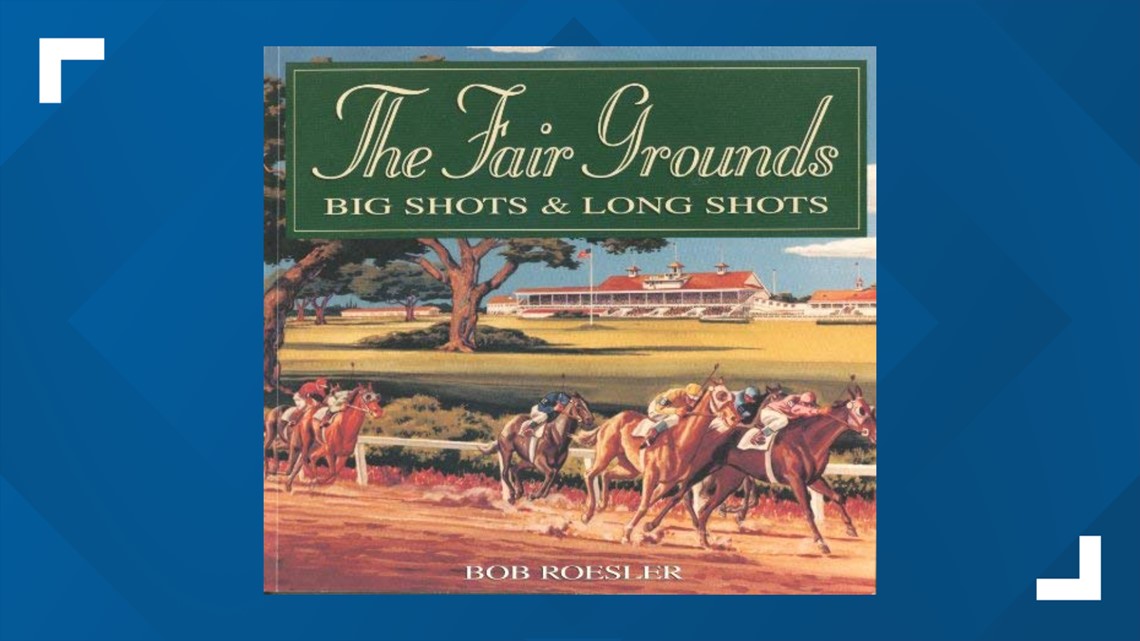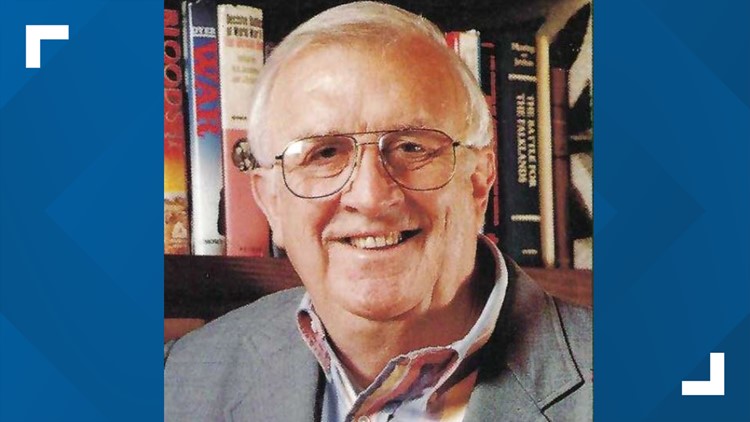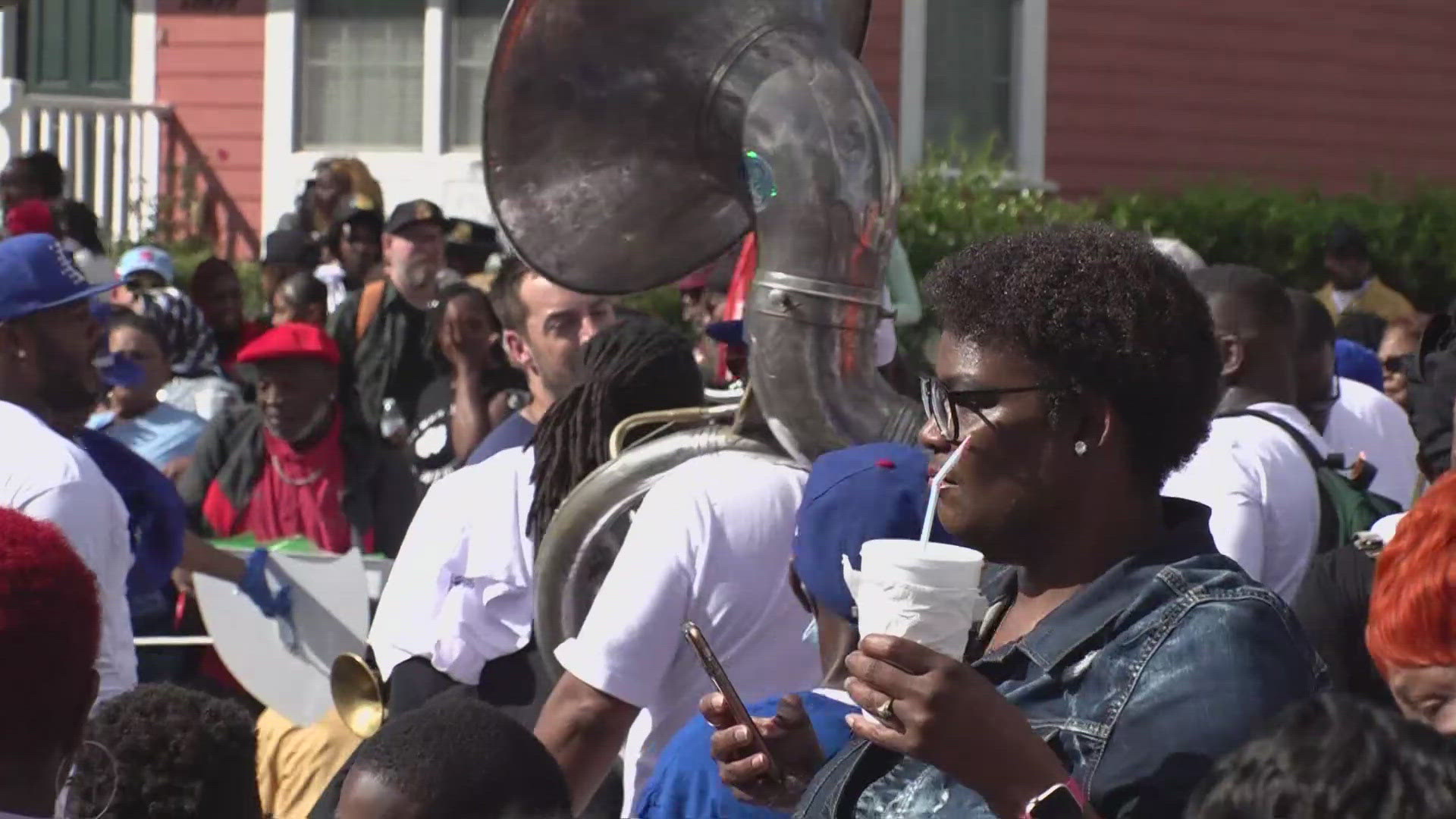NEW ORLEANS — Bob Roesler, who worked for 45 years as a sports columnist and executive sports editor of The Times-Picayune and played a key role in bringing ten Super Bowls to New Orleans, died Monday, according to his son. He was 93.
Roesler retired in 1994 after 45 years with The Times-Picayune. He joined the newspaper in 1949, was named sports editor and lead columnist in 1964 and served as executive sports editor and columnist from 1980 until his retirement. His "mailbag" columns, in which he answered letters about various sports topics from readers, are fondly remembered.
"I always felt like if Bob didn't know about in New Orleans, from a sports standpoint, and even from a news standpoint, then it probably hadn't happened yet," said longtime colleague Brian Allee-Walsh, who worked as a Times-Picayune sports reporter for 33 years. "He was so in tune with things and had his finger on the pulse of this city more than anybody. He really was 'Mr. Sports' in New Orleans."
News of Roesler's retirement in 1994 drew plaudits from the biggest names in sports. "He is one of the vanishing breed of sports editors/columnists/writers who represented his city and community so well and played such a big part in its growth to major-league status,” said former NFL commissioner Pete Rozelle, who awarded New Orleans the Saints franchise in 1966. Rozelle died in 1996.
Roesler covered the Saints from the very beginning. His front page story in the Nov. 1, 1966 Times-Picayune reported on the birth of the team. “The National Football League marched into New Orleans Tuesday and staked claim on the fertile and growing mid-South,” he wrote.
Over the next decade, Roesler also became a key supporter of the idea of building a domed stadium in the city as a home for the Saints.
"It sort of changed the complexion of everything in New Orleans,” he said in 1994. “In the beginning, I sort laughed at it, but I soon began to realize that (promoter) Dave Dixon was the music man with the band. Dixon is the original Saint, because he got the team here, and he and (former Gov.) John McKeithen got the Superdome built. Without one there wouldn't have been the other."


Five years before the Superdome opened, Roesler also played a significant role role in helping the city land its first Super Bowl in 1970. He was vice chairman of the local task force that brought Super Bowl IV to New Orleans, when the Kansas City Chiefs upset the Minnesota Vikings in Tulane Stadium.
"I probably got as much satisfaction out of landing that first Super Bowl as anything," Roesler said in a 1994 Times-Picayune interview. "The game in those days, the late 1960s, was considered Miami's. There were people laughing at us for trying to land something like the Super Bowl. But we worked at it and we got it.”
Roesler helped the city land the game by lobbying the NFL leaders with whom he had developed close personal relationships over the years. That included Rozelle and several team owners including Art Modell of the Cleveland Browns, Pittsburgh's Art Rooney and Wellington Mara of the New York Giants.
New Orleans would go on to host the Super Bowl 11 times, tied with Miami for the most in the NFL, including seven in the Superdome. Besides those games, Roesler attended and covered 28 Super Bowls during his career.
He also covered 31 Kentucky Derbys and numerous Belmont and Preakness Stakes. In 1998, he wrote a history of New Orleans’ race track, called “The Fair Grounds: Big Shots and Long Shots,” published by Arthur Hardy Enterprises.


Other assignments over the years including covering championship boxing matches, the Sugar Bowl and other major college bowl games. As he retired, he commented on the wide range of stories and sporting events he covered and commented on.
"I was there for Joe Namath's guaranteed victory in Super Bowl III, and Secretariat's 32-length victory in the Belmont. I interviewed Casey Stengel once at breakfast in California," he recalled. "Saturday nights in Tiger Stadium were always something special. The hair on my neck always rose when the LSU band took the field. People like (former LSU coach) Charlie McClendon, (the late Tulane coach) Jim Pittman were special. So were (ex-Greenie coach) Andy Pilney and Green Wave athletic business manager Buddy DeMonstebert and ADs Rix Yard and Hindman Wall. There have been so many, I've been blessed.”
A native of Hammond, Louisiana, who grew up in Lakeview, Roesler was orphaned at a young age when tuberculosis claimed both his parents and eldest sister. He sold peanuts at Tulane Stadium and delivered newspapers as a young boy. He attended Warren Easton High School but left at age 16 to join the Merchant Marine, then the U.S. Navy during the end of World War II. He served as an electrician's mate on submarines in the Pacific, though the war ended before he saw action. However, an opportunity to write for the newspaper on his Navy base in San Diego gave him his first taste of journalism.
"The bug bit me," he recalled in 1994. "I got ink in my blood, and I'm not sure anyone ever gets over that."
After returning home in 1946, he attended political science classes at Tulane University and found work at a small Algiers newspaper. He hoped to become a police reporter but heard of a job opening at The Times-Picayune on the sports copy desk. He applied, got the job and his future was set.
His early years at the paper were interrupted by service in the Korean Conflict, but he returned to the sports desk soon after. In a 1994 Times-Picayune interview, he recalled the first story he wrote for the newspaper.
“I had been working on the desk, but I was eager to write. The boss asked me if I could go out and cover a soccer match. So I went out and wrote about 10 or 15 paragraphs. They trimmed it to about three paragraphs. That's really all it was worth to begin with. It taught me that I better learn how to evaluate a story and stick with what's important,” he said.
Allee-Walsh recalled that Roesler could be a demanding editor, tough but fair with his reporters and columnists.
"He was tough, there's no doubt about it, and there were several occasions where I considered moving, but when I say that, it's out of true love because there was no better friend or mentor than Bob," he said.
In his final Times-Picayune column, Roesler reflected on his four decades in local sports journalism and how significantly the sports scene changed during that time.
“In 1949, New Orleans was a sleepy sports city. The Pelicans were playing in the Southern Association and commanded the headlines from spring to early fall,” he wrote. “There was some added attractions during our sizzling summers. The Pan American power boat regatta annually drew thousands spectators to the shores of Lake Pontchartrain. Southern Yacht Club sailing was a hot item. So was the large fleet of yachts that steamed to Grand Isle for the Tarpon Rodeo.”
He went on to explain how sports reporters like himself covered boxing, horse racing and college football, but the city was years away from a professional sports franchise.
“Slowly we came out of our sports semi-sleep,” he wrote. “New Orleans would become a major league metropolis. The Saints probably wouldn't have come here without the Dome on the drawing board. To say nothing of seven Super Bowls, three NCAA Final Four championships and several world championship fights,” Roesler wrote.
After his retirement, Roesler worked as a sports coordinator for the Greater New Orleans Tourist Convention Commission, later called the New Orleans Convention and Visitors Bureau. He represented the group at NFL owners’ meetings and on the Super Bowl Task Force where officials with the city and New Orleans Saints would present their Super Bowl bids.
Also in retirement, he became a civilian volunteer for the U.S. Navy recruiting division and regularly taught a course in media relations to Navy personnel at the Pensacola Naval Air Station.
In 2004, the Saints Hall of Fame presented Roesler with its Joe Gemelli Fleur de Lis Award for his contributions to coverage of the team and of professional football. In 2005, a plaque featuring Roesler’s likeness was unveiled by the Saints inside the Superdome press box.
The Touchdown Club of New Orleans presents an annual sports journalism award which bears Roesler’s name. He was the first recipient.
Warren Easton inducted him into its Hall of Fame and he was a member of the Sugar Bowl’s New Orleans Hall of Fame, the Louisiana Sports Writers Hall of Fame and the Greater New Orleans Sports Hall of Fame.
In 1997, Roesler was awarded the Dick McCann Memorial Award at the Pro Football Hall of Fame in Canton, Ohio.
A member of the National Turf Writers Association and former president of the Professional Football Writers Association, Roesler was also a charter member of the Press Club of New Orleans. He served as the group’s president in 1961 and was honored with its Lifetime Achievement Award in 1995.
He is survived by his wife of 65 years, Cloe, as well as three children, Kim Spencer, Bob Roesler and Toby Roesler, as well as three grandchildren and two great-grandchildren.
Because of local COVID-19 restrictions, the funeral on Friday, Feb. 26 will be private. After the burial, an informal outdoor memorial following COVID-19 protocols will be held for family, close friends and colleagues. The family asks that those interested email bob.roesler.memorial@gmail.com for details.
In lieu of flowers, the family requests donations to Friends of Warren Easton Charter High School, 3019 Canal St., New Orleans, LA 70119.



